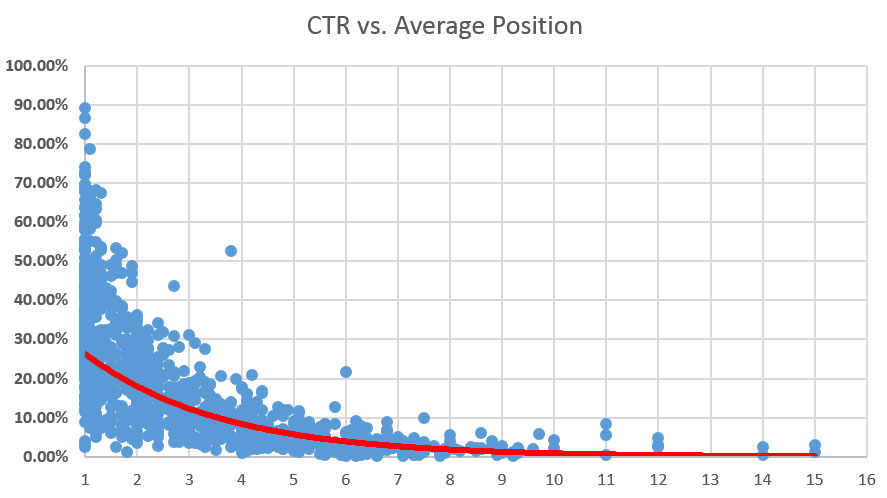Samples of SEO
SEO (“Search Engine Optimization”) is a method for attracting prospects to your website for free
Results from SEO services come in the form of free traffic (visitors to your website).
The volume of daily visitors you can expect will be in direct proportion to the amount of work that is done as part of the SEO campaign. If you have a student working full time (40 hours per week), your results will generally be quite a bit higher than if you have a student working only one day per week.
Predicting exact results is not possible, however, it is possible to reduce the risk of poor results by conducting two exercises:
- SEO Opportunity Analysis. The “OA” is a analytical tool used to measure the size of the opportunity (i.e. how much free traffic is available) and the anticipated difficulty. Some industries have great opportunity but have extremely sophisticated competitors with deep pockets, resulting in high difficulty. That scenario creates a situation where it can take much longer to get results. If the OA comes back with that diagnosis, you would usually be advised to wait for at least 6 to 12 months, then revisit to see if the environment has changed. If there is a good opportunity, and the competition doesn’t appear to be too strong, then you can safely proceed to a pilot test.
- Pilot Test. Prior to a long-term commitment to SEO, it is best practice to conduct a 120-day pilot test, since this is the minimum required time to begin to see results (see below). If the pilot test goes well, then a long term campaign can then be justified at low risk.
Below are some results from previous campaigns conducted by our marketing students:
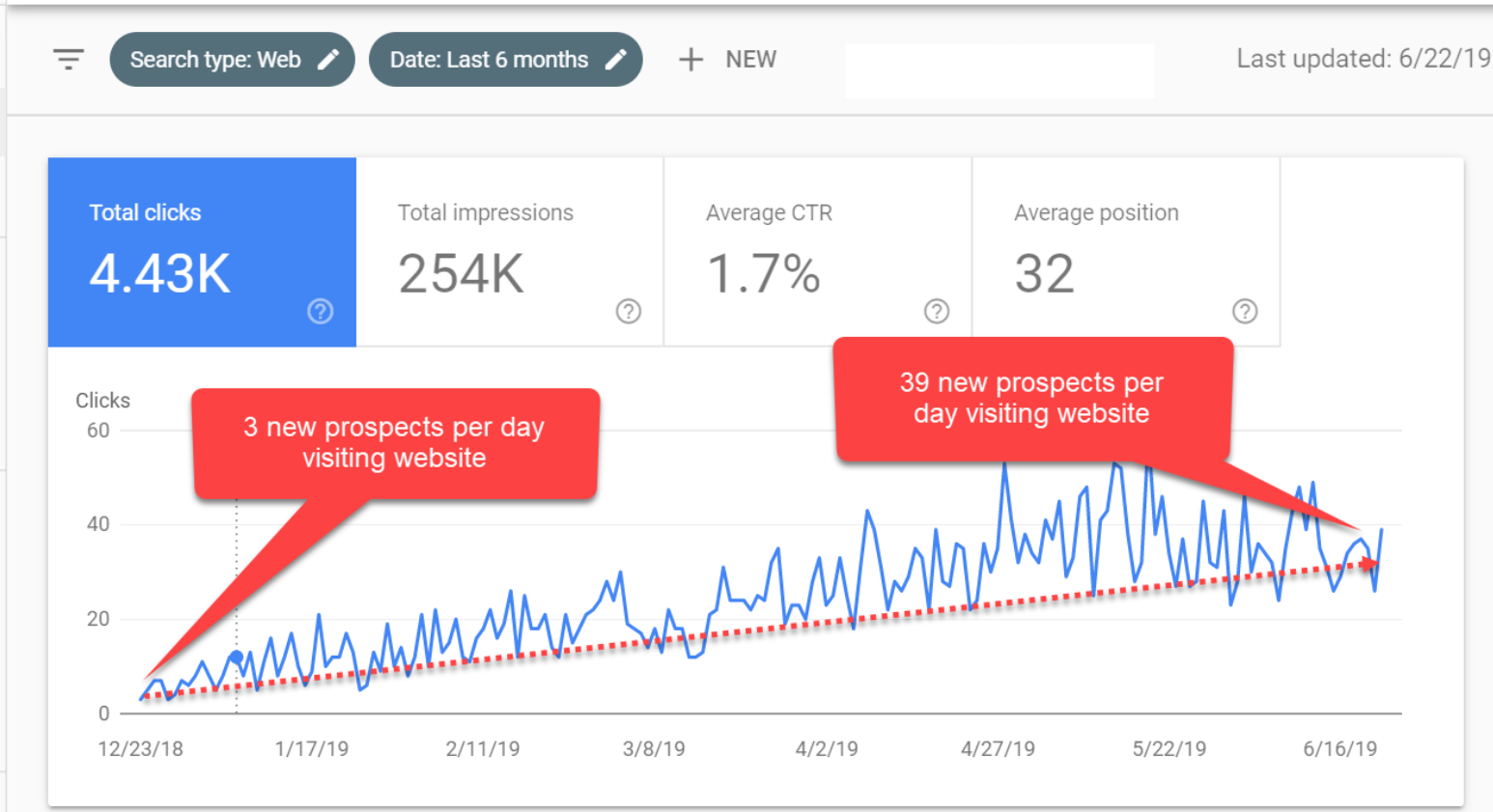
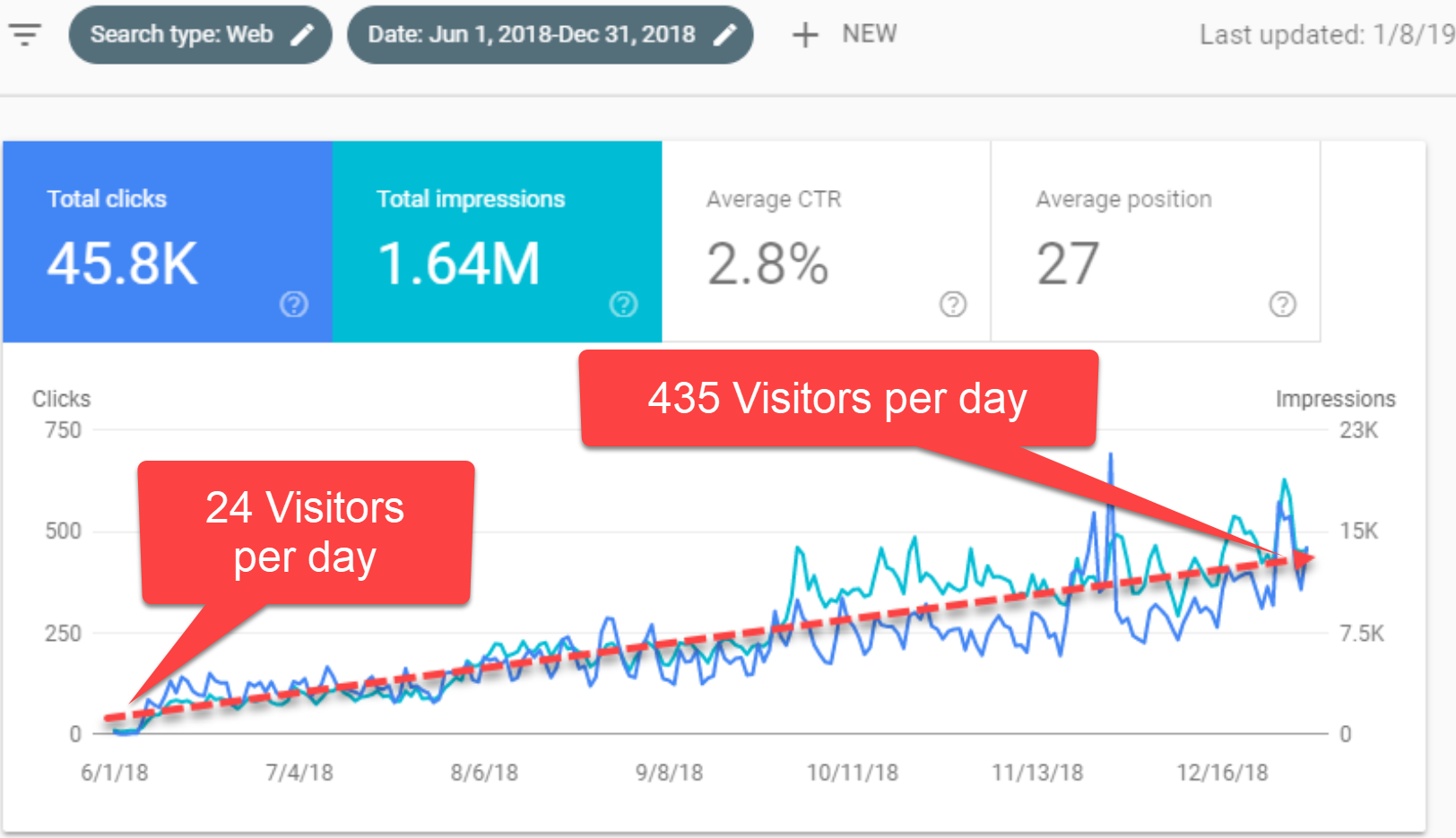
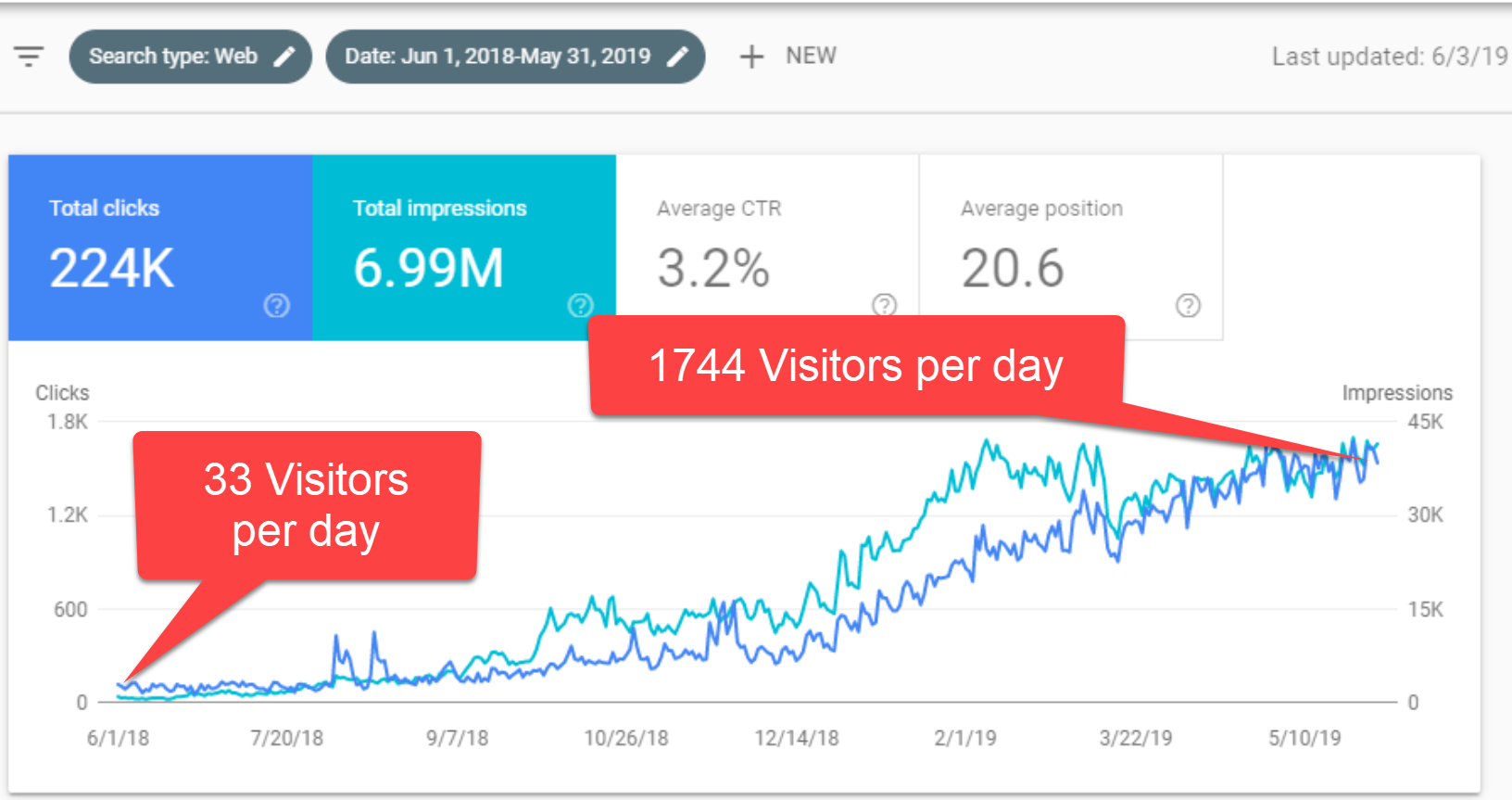
How long does it take to get results from SEO?
According to Forbes, it takes 4-6 months to see the beginning of results from a concerted SEO campaign. There are exceptions to this rule, but in general, we have found this estimate to be quite accurate. In four to six months you should see measurable improvement in rankings. Depending on where you are starting, you may still not be on page 1 of SERPS (search results), however; your rank reports should show position gains. For example, if you started in postion 56, in 4-6 months you could be in position 46 or even 36. In the website results below, our student SEO specialists had been working for six months.
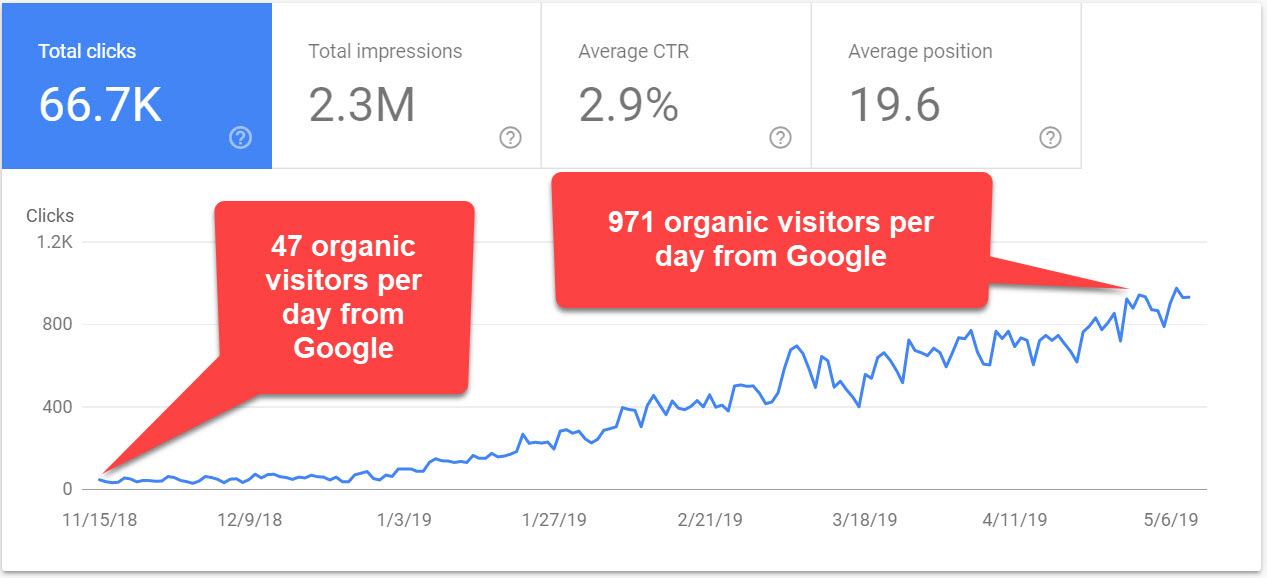
How much does SEO cost?
There are two categories of SEO work:
- One-Time work. This includes tasks such as optimizing the site for load speed, optimizing the meta tags on the website and building out your strategic approach, including tasks such as the assignment of specific, high-value keywords to individual pages of your website which you hope those pages will rank for. The time to complete all the necessary one-time SEO tasks usually ranges from one to two weeks of work. The final number depends a lot on how much work has previously been done. Most SEO work that we perform is at the rate of $22.22 per hour and by doing the math and doing some quick calculations, you can come up with a budget of $800.00 to $1500.00 to complete the one-time tasks. This work can be spread over several weeks or even several months, ensuring that a business can afford the work, while at the same time ensuring that the work is not neglected simply due to cost. All businesses should complete the one-time tasks, even if there is no ongoing campaign because even the one-time tasks will result in rank improvements, and after the strategy is in place, any new pages which are created can usually follow the general development pattern of pages which were previously optimized.
- Ongoing work. This includes the development of additional content (i.e. blog articles) and creating backlinks. Ongoing work is essential for rankings to consistently improve. A new businesses needs at least 1-2 days per week (8-16 hours). A larger business with a national market and lots of competition should expect to invest much more.
What is SEO?
Search engine optimization (SEO) is a marketing campaign with an objective of causing a website showing up in the result of a search on a search engine. The result is more qualified prospects to the website, without spending money on advertising.
By defining SEO like we do above, it keeps you focused on the goal, rather than the process. The goal of SEO is free traffic. And not just any traffic, but qualified prospects who have an intention to buy.
The higher you rank, the more free clicks you get.
‘Ranking’ is the position you show up in in search results. If your website shows up in position #2 on Google, that means you rank #2. The higher you rank, the more visibility you have and the more clicks you get.
The image below illustrates why it is so important to be near the top of search results.
What type of work is involved?
Step 1 – Keyword Research
What keywords do you want to rank for?
The keywords you decide to go after will determine how much free traffic you get, how many new customers you can get, and how much that traffic will be worth to you in terms of revenue and profits.
When deciding on which keywords to target in your SEO, there are several issues to consider;
- Search volume. How many people are using that keyword in their search? More people searching means more traffic is available from that keyword. The more searches there are, the better. In Chart #1 below, the keyword ‘affordable furniture‘ gets more monthly searches than ‘furniture online‘ and for this reason would be a better choice.
- Ranking difficulty. The competition attempting to rank for some keywords can be fierce! For small businesses, attempting to organically rank for certain keywords can be a losing battle…. it will take too long and be to costly. And even then, it might be impossible. If a small insurance company could rank for the search term ‘insurance‘, that would be great, however; it is not likely. Better to go after keywords which are easier and perhaps even better. For example, ‘insurance company in burbank‘ would be far easier, and likely produce more paying customers than the word ‘insurance‘ alone. In Chart #1 below, the keyword ‘affordable furniture‘ has a difficulty score of 23, while ‘furniture online‘ is rated as a 62 (more difficult). The projected difficulty of ranking for a particular keyword that must be taken into consideration when deciding if you want to target that keyword.
- Commercial intent and opportunity. Ask yourself, do people with money to spend use this keyword? Are people searching with the intention to make a purchase? Remember, people with absolutely no intent to buy (i.e. job seekers) might use a keyword with lots of search volume, but those searches are not of much value to you. Try to find keywords which clearly indicate a willingness to buy. For example; ‘Plumbing company‘ is better than ‘how to fix a plumbing leak‘. In Chart #1 below, ‘free furniture‘ is far less desirable than ‘affordable furniture‘.
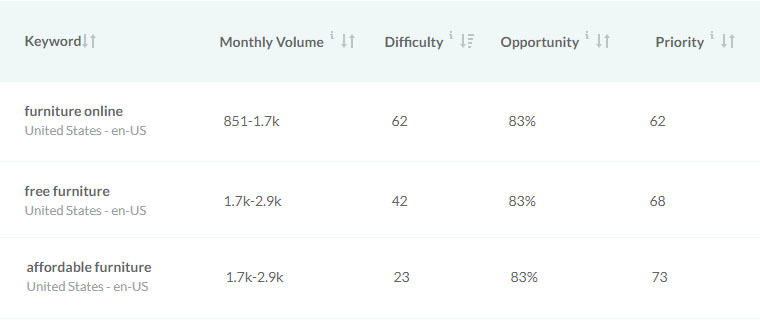
Step 2 – Website Structure and Onpage Optimization
Your website must be planned for SEO marketing right from the beginning. This includes the menu and URL structure, the page names and the content on those pages. Once you have the structure right, the rest is much easier.
You should focus on ranking each page for just one primary keyword or phrase.
Here’s why: The primary keyword is targeted using visible or hidden elements on the page such as;
- Page URL
- H1 tag (hidden code)
- Meta title (hidden code)
Focusing on a single phrase or keyword in the above items gives you a much better chance of ranking well. So it is crucial you make a decision what that primary keyword is going to be.
It is possible to rank a page for more than one keyword, and it is fine to plan a family of related keywords on single page. For example, you could place the following keywords on one page:
- affordable furniture
- furniture deals
- furniture on a budget
By utilizing H2 or H3 tags (multiple instances are allowed), structured snippets and related images, you could rank that same webpage for these keywords as well.
But your primary keyword must always remain as your strategic focus and this will keep your SEO marketing efforts focused and therefore more effective.
Once you have the site structure and page content planned out, you can then go to work on the hidden components of the search engine optimization process. This includes;
- Meta tags for title and description
- H1, H2 and H3 tags
- Social tags, including open graph and card markup
- Structured snippets
Step 3 – Link Building
Link building is the process of creating links on other, high-authority websites, with those links pointing back to specific pages on your site. There was a time when this website (studentmarketing.agency) did not rank for the keyword “Marketing Agency”. Then we got a backlink on Forbes.com and shortly after started receiving hundreds of hits per day from that phrase alone.
Links pointing to your site must be built on highly respected websites to gain maximum impact. But not just that. The content on those third-party sites must also be relevant to your own site (topical trust flow).
The process of building links can easily consume several hours per day. If you are on a limited budget, let your SEO company know that you need to put a cap on how much time in invested in the link building process, so they can focus on the most high-value targets first.
Step 4 – Create New Content
Google likes it when new content is added to your website. For this reason, it is most efficient to coordinate your social media work with your SEO.
The best social media campaigns require the ongoing development of new posts to your social accounts. If you plan it right, (and you should) that same content can be added to your website and used as SEO fodder. The relationship between content development and placing high in search engines is a foundation for understanding SEO.
Your blog is also another source of new content. In general, the more words you have on your site, the more words that search engines will have indexed you for, and you have a better chance for ranking for keywords which are on your website than for those which are not. This is the very essence of content marketing.
Step 5 – Monitor your Ranking Progress
Your SEO expert will be provide you with periodic ranking reports so you can watch the progress over time. Don’t expect miracles in the first week of any affordable SEO campaign. It takes time to build authority and establish your presence in the eyes of Google. But if the work is consistent, even modest SEO services can make a noticeable difference.
Have a quick chat and get your questions answered
See videos, strategies, social…

